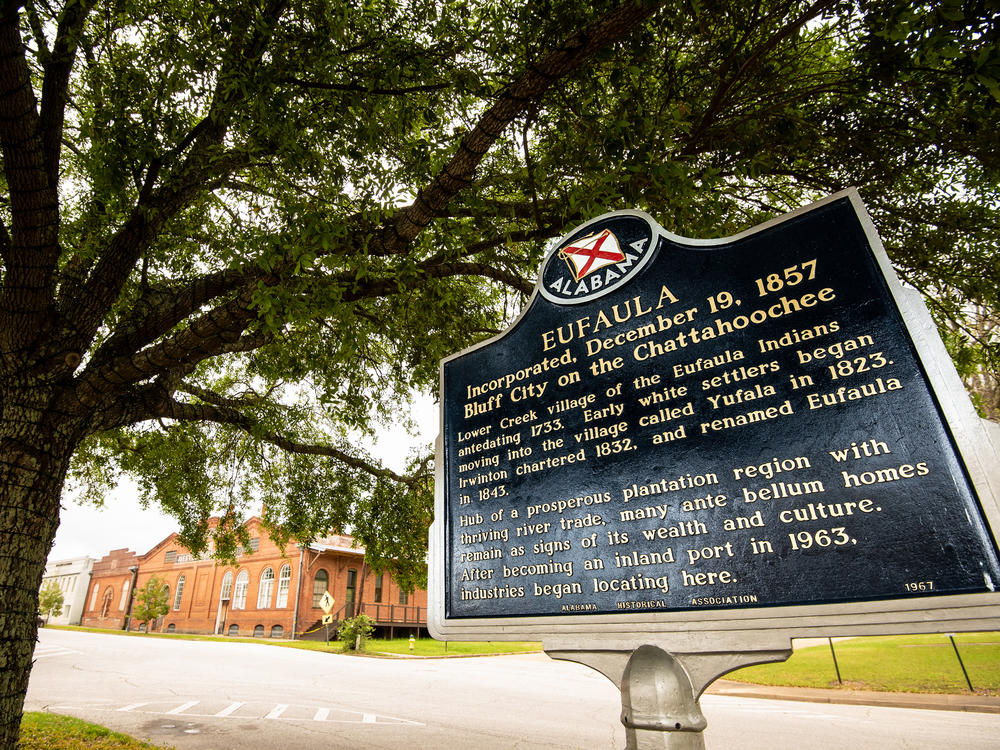Section Branding
Header Content
The Sunday Story: Off The Mark, an NPR investigation into America's historical markers
Primary Content
Historical markers dot the American landscape. They are on the sides of roads, in parks, rest areas, in the middle of nowhere. They purport to offer a glimpse into the past, marking a moment or place of significance worth remembering. But a year-long investigation by NPR's Laura Sullivan found some of these markers present a fractured and confused telling of the American story. Some share humor and joy but many present a version of history that's been distorted or outright fictionalized with offensive lies.
NPR found hundreds of markers across the country that still call Native Americans savages, hostile, or use racial slurs. Markers in the West and Southwest glorify the work of rangers and missionaries without mentioning the violence they inflicted. Nearly 70 percent of markers that mention plantations do not mention slavery. While markers across the South vilify the Union and distort the true history of the Civil War.
This episode was produced by Abby Wendle and edited by Jenny Schmidt with fact checking by Barbara Van Woerkom and engineering by Robert Rodriguez.
We'd love to hear from you. Send us an email at TheSundayStory@npr.org. Listen to Up First on Apple Podcasts and Spotify.
A note about Harper's Ferry
A previous version of this episode incorrectly identified Harper's Ferry as being in Virginia. It is in West Virginia and the audio has been corrected.

